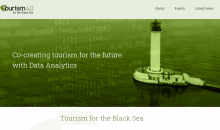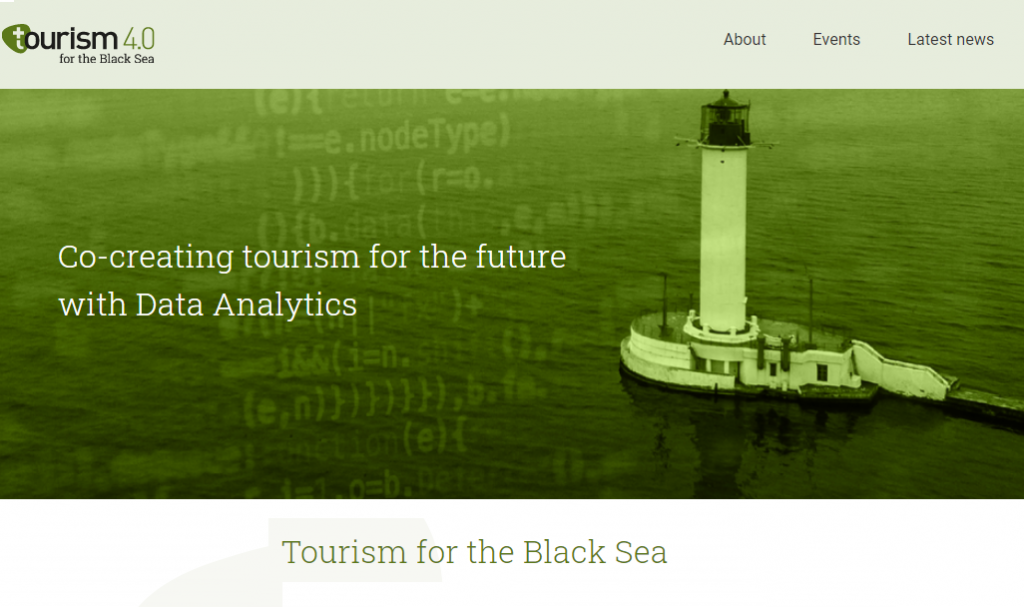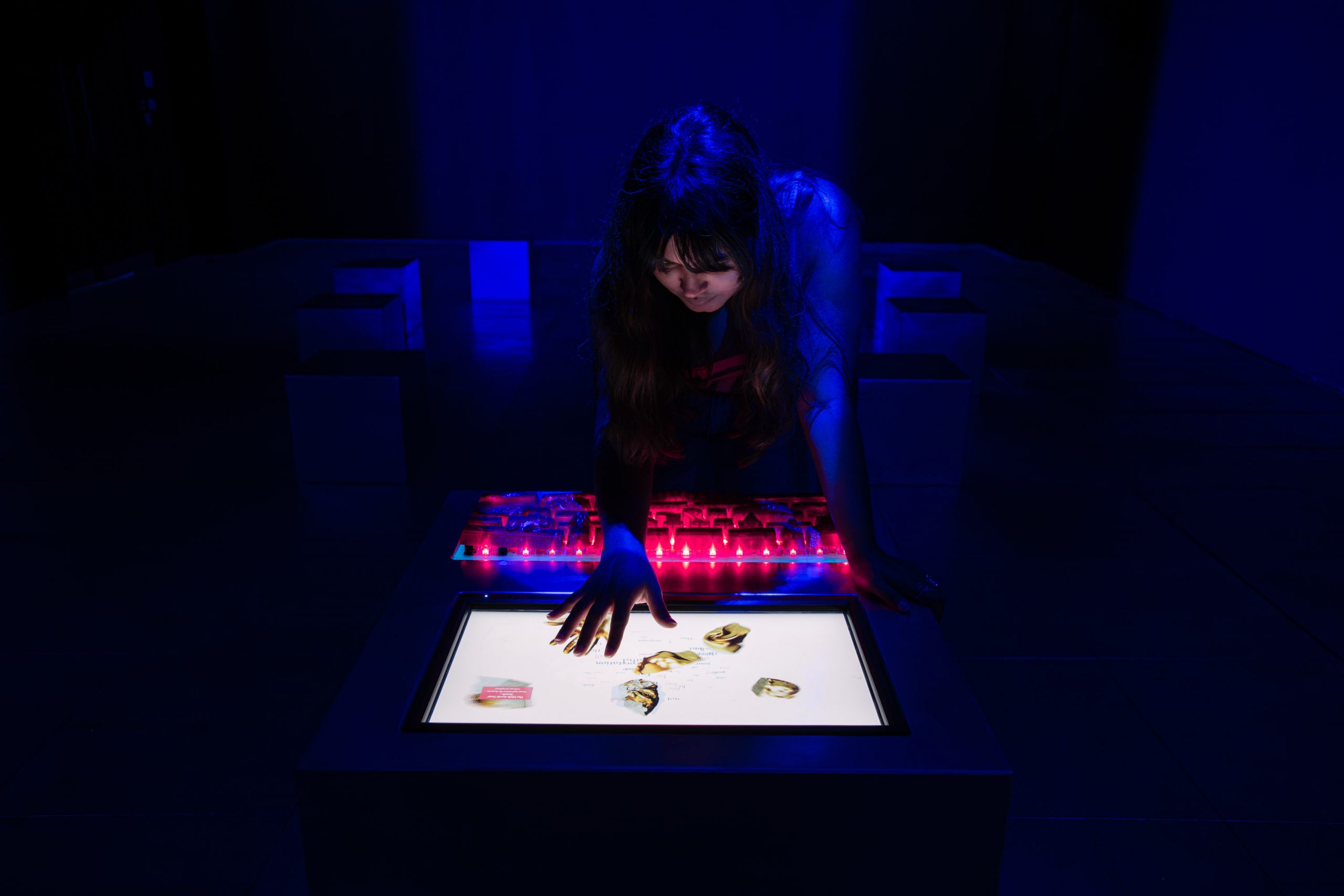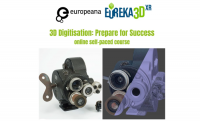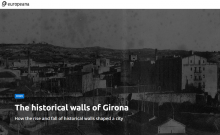Contemporary creation, new art forms, unexpected locations:
Little Islands Festival explores and creates new worlds and suggests alternative ways of viewing art and life.
With a view to connecting the Aegean landscape to contemporary creation and the power of new media, Little Islands Festival is experimenting at the crossroads of cultural heritage and innovation and proposes an open space where we can meet and interact, a summer festival that takes the viewer on an exciting audiovisual journey.
The third LIF under the title “Living Environments | Περιβάλλοντα Διαβίωσης” returns to the island of Sikinos from the 20th to the 23rd of August and transforms the labyrinthine public space of the Cycladic settlement into an ideal setting with outdoor screenings, exhibitions and installations. Abandoned buildings, shelters/sheds, windmills, cliffs and cobbled alleys, the traditional architectural lines are reinvented in a new performative/representational idiom, a metaphorical landscape symbolizing the link between human habitation and the natural environment.
More than 60 art projects from 30 countries appropriate the public space of the settlement and propose new interpretations and correlations to the traditional element in search of a contemporary social landscape where the limits of art, nature, life are intertwined and fuel each other by weaving an active thread of dialogue with the past. Documentaries, short films, video art, animation, audiovisual performances and installations, live 3D mapping and VR, offer a new touring experience conveying ideas, images and experiences.
In the context of the topic “Living Environments | Περιβάλλοντα Διαβίωσης”, LIF also presents original site-specific project assignments, discussions with the artists, interactive workshops for children and alternative guided tours at Sikinos cultural heritage sites.
What we are going to see at the Little Islands Festival
Open-Air Screenings
The main screening schedule includes short length and feature-length documentaries that explore the daily routines and rituals of the island life. Following the screenings, open discussions with the directors spark a fruitful public dialogue.
A section of recently produced short films that are conceptually related to the topic “Living Environments”, contemporary video art and award-winning animation for both children and adults are shown in iconic locations of the traditional settlement of Kastro and reflect their own perspective on the man-made and natural environment.
Audiovisual Performances
LIF 2021 hosts a wide range of audiovisual performances by Greek and foreign artists who interact with the specific architectural features of the site:
On the opening night of the Festival, the site-specific audiovisual installation ATLANTIS will be presented by the cinematographers Vicky Markolefa and Bastian Fischer (Mind the Bump). The two artists are mapping and surveying the underwater environment of Sikinos and turn the ruins of a Cycladic house into an underwater place inviting us to discover its secrets.
Director and performer Marine Midy introduces herself with the “aquatic” project AQUA VITAE that explores the uncertain future of the oceans through the iconic myth of Medusa in an audiovisual show with puppets for adults and children.
The VJ project “Paintscapes” and “Alienscapes” by Thomas Vallianatos, an installation presented at the magnificent courtyard of Agios Ioannis church, gives an artistic and theoretical perspective on the fractals of Nature, which unfold to the viewer as landscape scenes through 3D animation and visualised soundscapes.
Reclaiming the space of an old windmill, multimedia artist Panagiotis Tomaras and performer Despina Sanida-Krazi join forces and create Alexithymia, a light and dance show inspired by the situation of people who experience difficulty understanding and expressing emotions. The performative body remains cut off from external stimuli by making an abstract and repetitive motion while flashes and shifts of light reveal fragments of its movement.
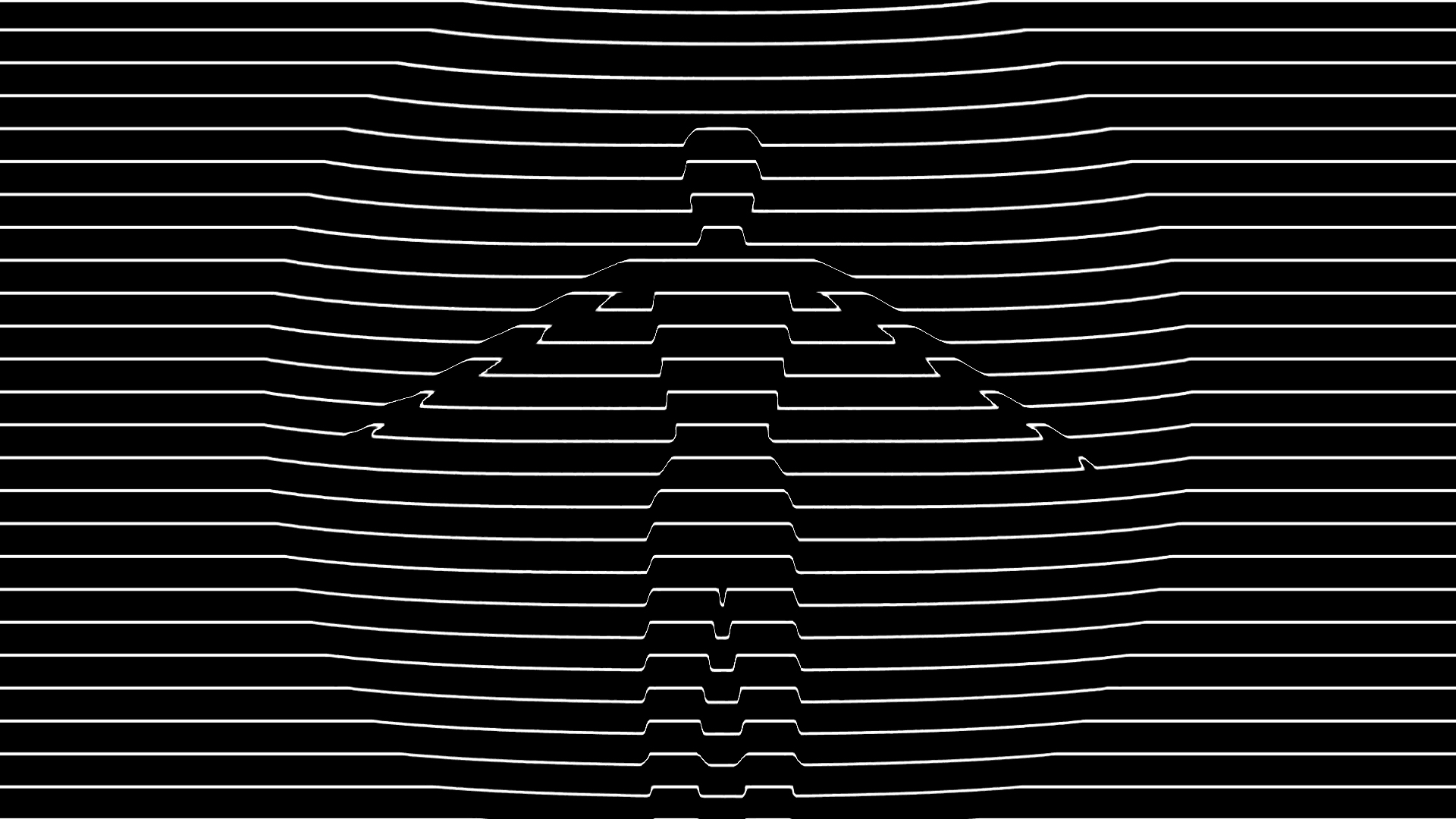
Alexithymia (Light and Dance Performance) by Panagiotis Tomaras
3D Projection Mapping
The landmark house that dominates the settlement square is revived through the universe of 3D Projection Mapping: The project PIECES of MEMORIES by Eri Harigai recreates the “poetic” wear and tear that time has caused to the ruins of the house through images, colours and organic textures. The scene alternates with Panagioti Tomara’s live 3D mapping Sikinos Castle, which highlights hidden architectural aspects of the rubble, revealing the contradictory properties between new technology and the ravages of time.
Interactive Installations
The interactive installations forming a peripatetic exhibition interact with the complexity of the Cycladic public space. A hidden gallery, a historic side door, and other locations of the settlement are transformed into open art spaces that the public can visit during the festival.
NOBODY’S TALES by the artistic group Lele Marcojanny presents a hybrid book documentary with texts, sounds and videos that compose a collection of stories about the Mediterranean, approaching the concepts of time and identity in a sea that instead of separating as the dominant narrative suggests, eventually brings people closer.
The Still, Missing You installation transforms the “side door”, which opens into the square of the “Kastro” settlement, into a place that interacts with human senses. The artist, Layla Klinger, installs an impressive interactive “net” of different light patterns in the silent and dark environment of the shed, which is activated when one approaches or crosses the passage, leading them, through a new way of interacting with space, to the exit.
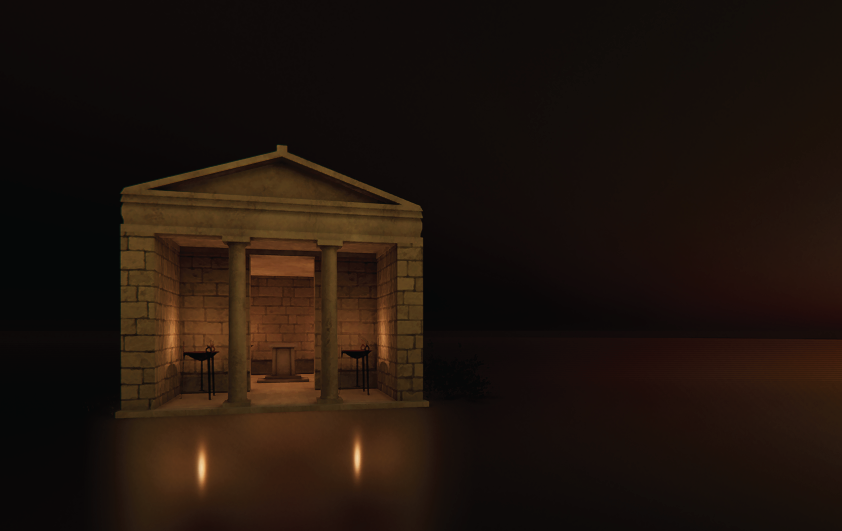
VR episkopi
Alternative Tours
A digital experience that combines interaction and learning by approaching the past and present of the place, as it guides visitors on unexpected paths. Through these alternative tours, the audience follows a different guided tour, an “unconventional” acquaintance with the nature and culture of Sikinos that offers both entertainment and education.
Episkopi Church in Virtual Reality | Giannis Koumoutzelis, Greece, 2021
Through VR glasses we get to know, interact and explore the history, the architecture, and other hidden aspects of a unique monument of the Cycladic landscape. Our exploratory tour is accompanied by the fictional narrative of Niko, whose unplundered tomb is the most significant archaeological discovery in recent years on Sikinos.
THE LEGACY OF SIKINOS | Ragna Kvernberg / Pål Kvernberg, Greece/Norway, 2021
The Legacy of Sikinos is a research project by land artists Ragna Kvernberg and Pål Kvernberg. A record of the chapels that dominate every path of Sikinos, key elements of its cultural heritage. The artists capture in 360ο photos the 61 chapels of Sikinos and place them with QR codes on a large map of the island that will be displayed at a central location. You can visit even the most remote chapel with the help of your mobile phone and plan to follow the most interesting route.
See here www.littleislandsfest.com the program of LIF 2021.
Follow us on Facebook www.facebook.com/littleislandsfestival and on our new Instagram page www.instagram.com/littleislandsfestival/
Created by: Creative Islands & New Media
Under the auspices and support: Ministry of Culture and Sports
Donor: Stavros Niarchos Foundation (SNF)
Co-organization: South Aegean Region and the Municipality of Sikinos


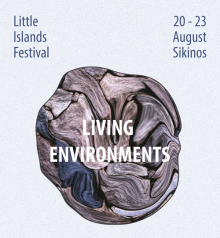





 The Work Package WP2 of the UNCHARTED project aims at analyzing the emergence of values linked to culture in practical contexts and in the field of cultural policy and cultural administrations.
The Work Package WP2 of the UNCHARTED project aims at analyzing the emergence of values linked to culture in practical contexts and in the field of cultural policy and cultural administrations.
 The aim of the Tourism 4.0 for the Black Sea project is to demonstrate the potential of Data Analytics for tourism development in the area of Black Sea. To achieve this, pilot services will be tested and the dialogue with regional stakeholders encouraged. Tourism 4.0 for the Black Sea project will boost sectoral cooperation and allow greater usage of the Industry 4.0 technologies in tourism. Data driven tourism will enable more sustainable development of tourism in the future.
The aim of the Tourism 4.0 for the Black Sea project is to demonstrate the potential of Data Analytics for tourism development in the area of Black Sea. To achieve this, pilot services will be tested and the dialogue with regional stakeholders encouraged. Tourism 4.0 for the Black Sea project will boost sectoral cooperation and allow greater usage of the Industry 4.0 technologies in tourism. Data driven tourism will enable more sustainable development of tourism in the future. All these themes and actions are very close to the work of INCULTUM, which aims to demonstrate the high potential of the marginal and peripheral places, cultural heritage and resources when managed by local communities and stakeholders, also supporting the research with collecting quantitative and qualitative data on cultural tourism to produce innovative data analysis and new statistics on this phenomenon. INCULTUM findings are oriented to foster positive impacts of cultural tourism by using a participatory approach involving local population and stakeholders as communities of practices.
All these themes and actions are very close to the work of INCULTUM, which aims to demonstrate the high potential of the marginal and peripheral places, cultural heritage and resources when managed by local communities and stakeholders, also supporting the research with collecting quantitative and qualitative data on cultural tourism to produce innovative data analysis and new statistics on this phenomenon. INCULTUM findings are oriented to foster positive impacts of cultural tourism by using a participatory approach involving local population and stakeholders as communities of practices.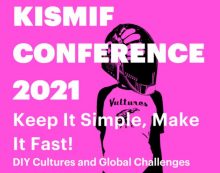
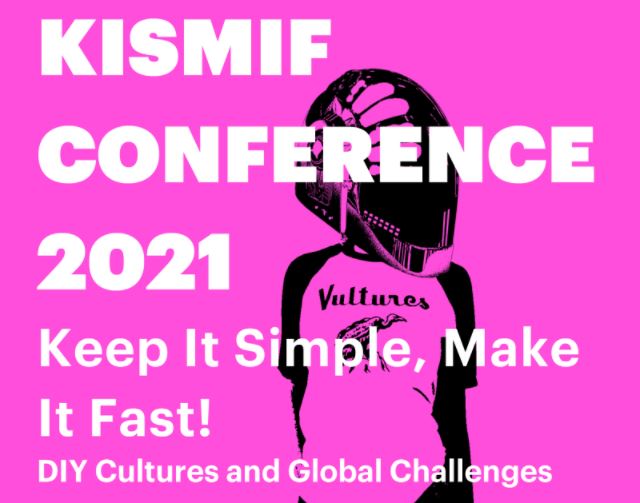 In July, members of the members of the UNCHARTED Consortium were invited to participate to the International KISMIF Conference ‘Keep It Simple, Make It Fast! DIY Cultures and Global Challenges’ (KISMIF 2021). The event goal was to foster a debate on the artistic sector considered in its widest expression: music, theater, performing arts, cinema, literature and poetry, graffiti and urban art, graphic design, drawing, architecture, radio, graphic design, drawing, architecture, cartoons and comics….In this general context the UNCHARTED project was presented with the Panel “Values in non-professional participation in cultural and artistic activities: examples from the UNCHARTED project” exploring diverse values from cultural participation.
In July, members of the members of the UNCHARTED Consortium were invited to participate to the International KISMIF Conference ‘Keep It Simple, Make It Fast! DIY Cultures and Global Challenges’ (KISMIF 2021). The event goal was to foster a debate on the artistic sector considered in its widest expression: music, theater, performing arts, cinema, literature and poetry, graffiti and urban art, graphic design, drawing, architecture, radio, graphic design, drawing, architecture, cartoons and comics….In this general context the UNCHARTED project was presented with the Panel “Values in non-professional participation in cultural and artistic activities: examples from the UNCHARTED project” exploring diverse values from cultural participation.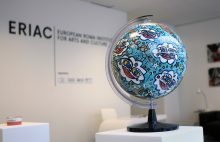




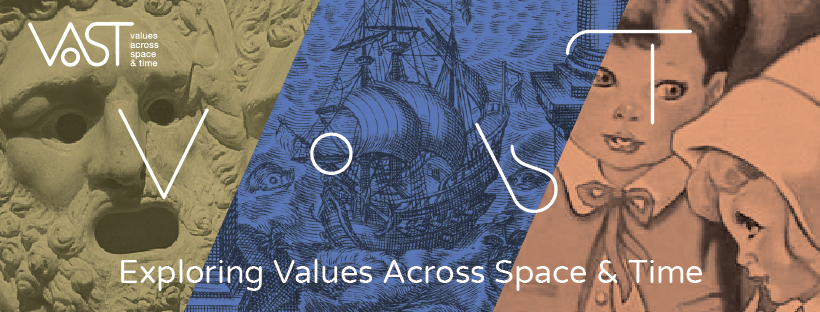 The VAST project (Values Across Space and Time) is an international collaboration between eight partners from five countries:
The VAST project (Values Across Space and Time) is an international collaboration between eight partners from five countries: 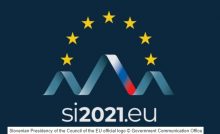
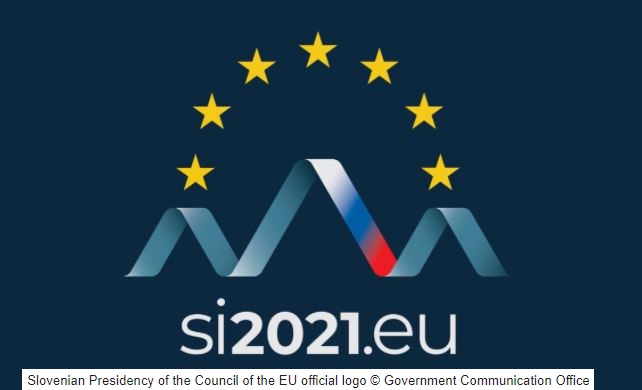
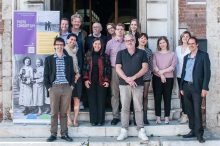
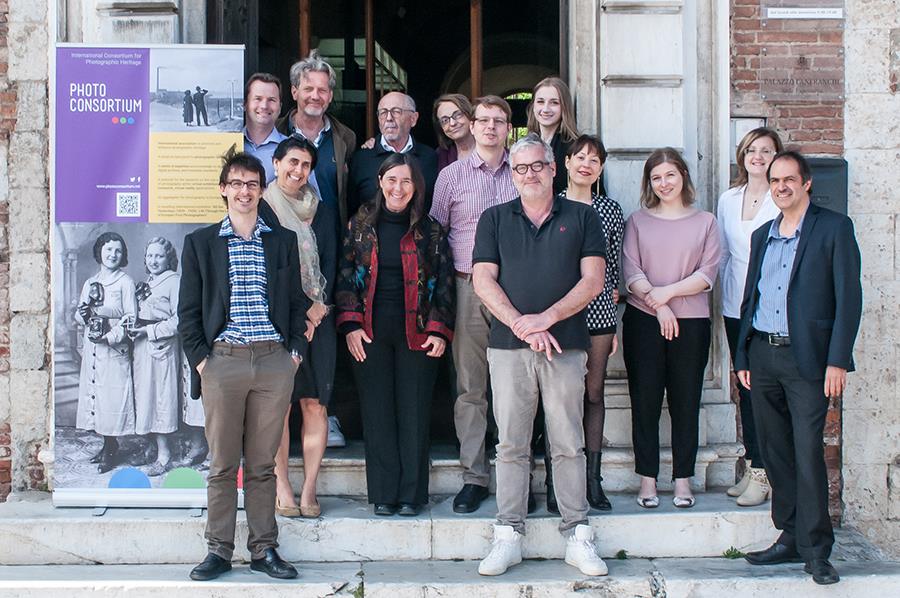
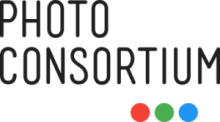 PHOTOCONSORTIUM was partner in the successful GS CEF project
PHOTOCONSORTIUM was partner in the successful GS CEF project 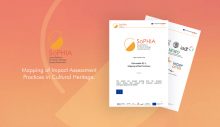
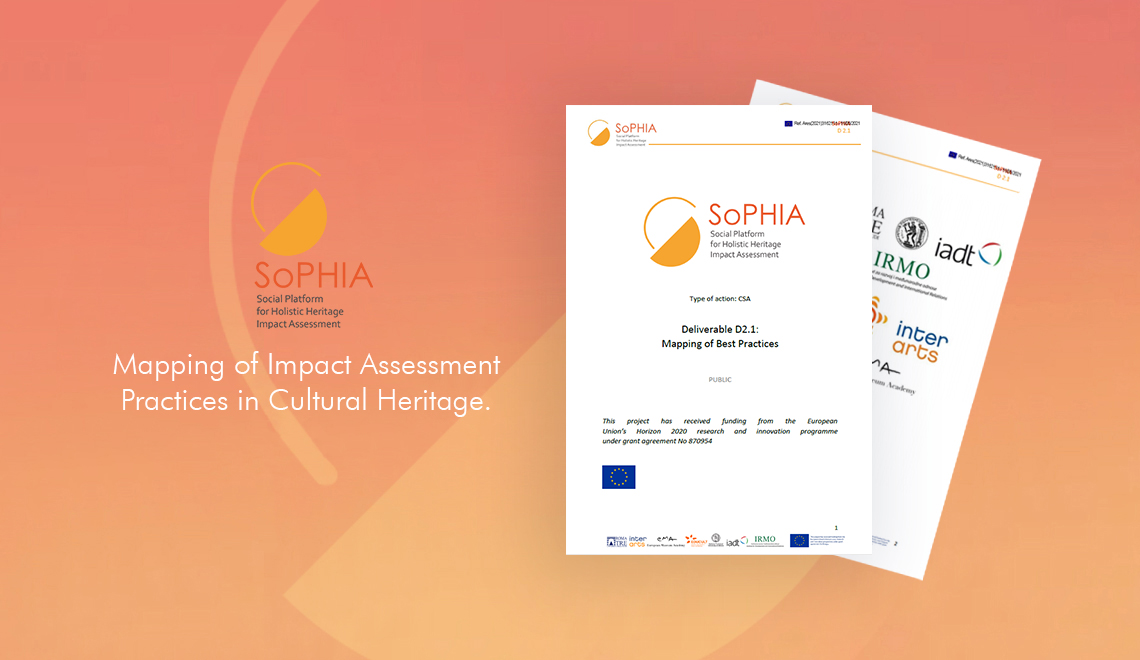 The Sophia platform, is developing a Holistic Heritage Impact Assessment Model. The recent progresses of its evaluation are referred to the identification of the three axes along which the model can be developed which are domains, people, and time. Next step was to collect and analyse existing cases of impact assessment practices for their applicability. At this puropose, members of SoPHIA’s
The Sophia platform, is developing a Holistic Heritage Impact Assessment Model. The recent progresses of its evaluation are referred to the identification of the three axes along which the model can be developed which are domains, people, and time. Next step was to collect and analyse existing cases of impact assessment practices for their applicability. At this puropose, members of SoPHIA’s 